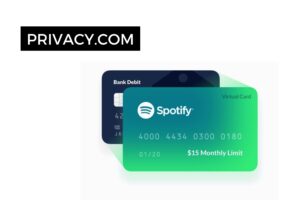As a small business owner, digital security is key to keeping your customers’ information safe, protecting your reputation, and ensuring the smooth running of your business. With cybercrime on the rise, having the right tools in place can make all the difference. Fortunately, there are various digital security tools that small business owners can use to protect their businesses.
In this blog post, we will look at 10 essential digital security tools every small business should be using.
Disclaimer: We want to clarify that some of the links mentioned in this article are affiliate links. This means that if you decide to purchase any of the recommended tools through these links, we may earn a commission at no additional cost to you.
- Firewall Software
- Antivirus Software
- Virtual Private Network (VPN)
- Password manager
- Two-factor authentication
- Encryption Software
- Backup & recovery software
- Email security software
- Website security software
- Employee training & education
1. Firewall Software
Firewall software is an essential tool for protecting your small business from malicious attacks. It acts as a barrier between your network and the outside world, monitoring incoming and outgoing traffic and blocking any suspicious activity.
There are many different firewall software options available for small businesses, but some of the most popular and effective include:
SonicWall – SonicWall is a well-known firewall software that offers advanced threat protection, including intrusion prevention, malware protection, and content filtering.
Cisco ASA – Cisco ASA is another popular firewall software that provides comprehensive network security and protects against a wide range of threats, including viruses, worms, and spyware.
Fortinet – Fortinet offers a range of firewall software options for small businesses, including the FortiGate series, which provides high-performance network security and threat protection.
2. Antivirus Software
Antivirus software is another crucial tool for protecting your small business from cyber threats. It detects and removes viruses, malware, and other malicious software that can compromise your network and data.
Here are a few popular antivirus software options for small businesses:
Norton Small Business – Norton Small Business is a comprehensive antivirus software that provides real-time protection against a wide range of threats, including viruses, spyware, and malware.
McAfee Small Business Security – McAfee Small Business Security is another popular antivirus software that offers robust threat protection and includes features like email protection and anti-spam filtering.
Kaspersky Small Office Security – Kaspersky Small Office Security is designed specifically for small businesses and provides advanced threat protection, including ransomware protection and data backup and recovery.
3. Virtual Private Network (VPN)
A virtual private network (VPN) is another essential tool for small businesses that want to keep their online activities and data secure. A VPN encrypts internet traffic, making it impossible for hackers to intercept and read it.
Additionally, a VPN allows businesses to access the internet as if they are located in a different geographic location, which can be useful for accessing region-restricted websites or services.
There are many VPN options available, but not all of them are created equal. Some VPNs may slow down internet speeds or have unreliable connections, which can be frustrating for businesses. However, there are several VPNs that are ideal for small businesses. These include:
ExpressVPN – A popular VPN option that offers fast speeds, reliable connections, and top-notch security features.
NordVPN – Another popular VPN option that has a large server network and robust security features.
Astrill VPN – One of the best VPN providers on the market! We wrote an article that you can review: Beginner’s Guide to Astrill VPN
Related Reading:
- Battle of the Best VPNs: Which Provider Reigns Supreme in 2023
- Protecting Your Personal Information Online: A Comprehensive Guide
- Top Trends for Digital Security in 2023
4. Password manager
Using strong, unique passwords is an important part of staying secure online. However, it can be difficult to remember all of the different passwords needed for various accounts. That’s where a password manager comes in. A password manager securely stores all of your passwords in one place and automatically fills them in when needed.
There are many password managers available, but some of the best options for small businesses include:
LastPass – A popular password manager that offers a user-friendly interface and strong security features.
1Password – A robust password manager that offers advanced security features, such as two-factor authentication.
Dashlane – A feature-rich password manager that includes a built-in VPN and dark web monitoring.
5. Two-factor authentication
Two-factor authentication (2FA) is a security feature that requires users to provide two forms of authentication to access an account. This typically includes a password and a unique code sent to the user’s phone or email. 2FA adds an extra layer of security to accounts, making it more difficult for hackers to gain access.
Some popular 2FA options for small businesses include:
Google Authenticator – A free 2FA app that generates unique codes for users.
Authy – A 2FA app that includes backup and recovery options in case of a lost or stolen device.
YubiKey – A physical hardware device that generates unique codes and can be used for 2FA on various accounts.
6. Encryption Software
Encryption involves converting data into a coded language to avoid unauthorized access. If you run a small business that deals with sensitive data such as financial information or personal customer data, encryption software is an essential tool that you need to have.
Some popular encryption software options for small businesses include:
VeraCrypt – A free encryption software that can be used to encrypt files, folders, and entire hard drives.
AxCrypt – A user-friendly encryption software that integrates with popular file-sharing services like Dropbox and Google Drive.
BitLocker – A built-in encryption software that comes with Windows operating systems.
7. Backup and recovery software
Backing up important data is crucial for small businesses. Without proper backup and recovery options, businesses risk losing important data in the event of a cyberattack, hardware failure, or natural disaster.
Some popular backup and recovery software options for small businesses include:
Acronis True Image – A comprehensive backup and recovery software that includes features like cloud backup and ransomware protection.
Carbonite – A user-friendly backup and recovery software that includes automatic backup options and remote access.
Backblaze – A budget-friendly backup and recovery software that includes unlimited cloud storage options.
8. Email security software
Email is a critical communication tool for small businesses, but it is also a common entry point for cyberattacks. To protect against email-based threats such as phishing and malware, small business owners should invest in email security software.
Some popular email security software options for small businesses include:
Barracuda Email Security – This software offers protection against spam, malware, and phishing attacks, as well as encryption and archiving features.
Mimecast – This software offers email security, archiving, and continuity features, as well as protection against advanced threats.
Proofpoint – This software offers protection against email-based threats, as well as data loss prevention and compliance features.
9. Website security software
Websites are often a primary target for cyber attacks, and small businesses should take steps to protect their online presence. Website security software can help prevent attacks such as hacking, malware injection, and DDoS attacks.
Some popular website security software options for small businesses include:
Sucuri – This software offers website scanning, malware removal, and DDoS protection features.
Cloudflare – This software offers website security, performance optimization, and DNS management features.
SiteLock – This software offers website scanning, malware removal, and WAF protection features.
10. Employee Training and Education
While investing in digital security tools is important, it is equally important to educate employees on cyber threats and best security practices. Small business owners should provide regular training and education to employees on topics such as password security, email security, and safe browsing habits.
Some popular websites that provide employee training and education on cybersecurity include:
Cybrary – This website offers free online courses on a variety of cybersecurity topics, including basic security awareness training.
SANS Institute – This website offers a variety of online courses and training programs for cybersecurity professionals, including courses on security awareness training.
KnowBe4 – This website offers security awareness training and simulated phishing tests to help employees recognize and avoid phishing attacks.
Conclusion
By investing in these tools and educating employees on cyber threats and best security practices, small business owners can help protect their businesses and their customers from the damaging effects of cyber attacks.
It is important to remember that cyber threats are constantly evolving, and small business owners should regularly review and update their security measures to stay protected.









One Response
This is the right website for anyone who really wants to find out about this topic. You understand so much its almost hard to argue with you (not that I really would want toÖHaHa). You definitely put a new spin on a topic that has been discussed for years. Excellent stuff, just excellent!